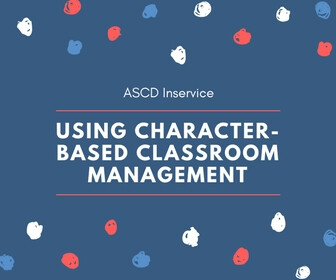By Marceline DuBose and Paul Gorski, Equity Literacy Institute
As advocates for educational equity who work with schools across the country, we are blown way by how educators are responding to the Covid-19 crisis. We understand the challenge of coping with our own stressors while attempting to do our best for students and families. In this spirit, we wanted to share what we have been thinking about as we apply our equity literacy perspectives on the present context.
The sudden move to distance learning raises what might appear to be new equity concerns. As we adapt, let’s keep equity front and center. We can start by considering how we’re prioritizing the interests of families with the least access to material resources or who, for other reasons, are impacted by the crisis in disproportionate ways.
At the same time, let’s recognize that when we talk about this crisis only in terms of its newness, we fail to recognize its connection with generations of inequity. As a result, we limit the impact of our equity responses.
Remember, for many students — those experiencing racism, economic injustice, heterosexism, sexism, ableism, or transphobia in and out of schools— this type of crisis might be novel, but the crisis of inequity is not. For example, many educators were thinking about gaps in home access to technology long before Covid-19. Many weren’t. If we’re in that second group, we need to start thinking about it, but also to grapple with our previous failure to think about it. What else are we missing with that way of thinking? This is equity literacy.
So, here are the questions with which we invite you to grapple: How can we put and keep equity front and center now while recognizing the impact of longer-term equity crises? How can we apply basic equity principles in order to mitigate, rather than exacerbate, the challenges families are facing?
Below, we offer the fruits of our own grappling: a non-exhaustive list of equity considerations during COVID-19 followed by recommendations for equity efforts moving forward.
Equity Considerations
- Families have different levels of access to material resources, a reality exacerbated as more and more people are laid off from work. This includes basic learning materials like paper as well as computers. It includes Internet access, so even if we distribute notebooks, some students might not be able to access online platforms easily. Some only have access to low-speed Internet, unconducive to videoconferencing or streaming.
- Many videoconference participation rules we’ve seen posted online—find a quiet space to work or keep your camera on, for example—don’t account for different levels of access to material resources or home circumstances. Some students don’t have a quiet space to work. Many are balancing a variety of stressful situations. These implicitly shaming policies create more distance between students and teachers. Our colleague, Taharee Jackson, wrote a powerful personal essay about this here. Please read and share it.
- Disparities can be exacerbated online for students with learning differences. Students who don’t have learning differences can adjust to platforms that make learning materials accessible to students who do. But those who do have learning differences can’t easily adapt to platforms that fail to consider their access needs.
- White, middle-class-and-wealthier, college-educated workers are most likely to be able to work at home, while economically marginalized people of color without a college degree are least likely. The children of the latter are more likely to have home responsibilities during the day, like taking care of siblings.
- Bullying and inequities that students of color, students experiencing poverty, LGBTQ+ students, and others experience in person are replicated with precision online. The move to online learning could open more avenues for bullying and harassment.
- Many parents and caretakers are coping with significant stressors. On average these are elevated for families of color, families that are economically marginalized, and families coping with other forms of oppression. Be careful not to expect all parents and caretakers to have the time or energy to actively engage in children’s learning.
Equity Recommendations
- Many Internet service providers are offering free service to students. Identify which are doing so in your area and help families connect with them.
- Find ways to distribute other learning supplies to families. They could be distributed along with lunches if your school or district is still providing them.
- Identify a point person to help families with Internet access and other technology challenges. Ensure help can be provided in all languages represented at the school. Don’t expect individual teachers to troubleshoot technology.
- Suspend grading. Some schools are temporarily adopting pass/fail grading. If we give anybody a “fail” right now, we need serious remediation of our equity commitments.
- Eliminate homework.
- Appoint equity specialists to vet curricula to ensure we don’t adopt materials that might marginalize students, normalize dominant narratives, or omit historically silenced voices.
- Make communications regarding everything from district scheduling to student work expectations available in multiple languages.
- Provide teacher guidance on how to respond equitably to online racism, sexism, heterosexism, transphobia, and other forms of bias and oppression.
- Tailor learning materials to the needs of students with learning differences and students who are learning English.
- Assign somebody to coordinate with organizations that support students who are homeless. That person should work directly with these organizations to ensure students have access to the resources they need.
Concluding Thoughts
This is one of those proverbial “measuring stick” times. Let’s make sure to keep equity front and center. It should inform every policy and practice. It should be a foundation of institutional culture.
Let’s remember, too, that equity is not a temporary strategy that we pull out of the drawer and apply only because of a new crisis. It’s a deep, comprehensive commitment to eliminating ongoing crises.
We hope what we’ve shared is helpful for addressing concerns needing attention right now. We also hope it’s a reminder of bigger equity issues underlying these concerns that will continue to need our attention after COVID-19.








